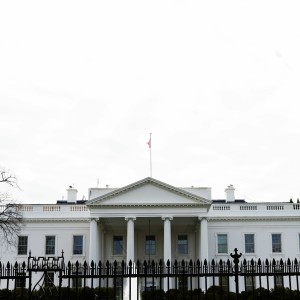Episodes

Tuesday Jul 16, 2019
Tuesday Jul 16, 2019
Dr. Laura Junor joins the CNAS Women in National Security podcast mini-series on human capital to discuss how the government must change its personnel systems to bring in the right talent at the right time. She is Director, Research and Strategic Support at the National Defense University, Institute for National Strategic Studies. Prior to her arrival at NDU, Dr. Junor was confirmed as the Principal Deputy Under Secretary of Defense for Personnel and Readiness. Dr. Junor previously served as the Deputy Assistant Secretary of Defense for Readiness, the Chief of Staff for Cost Assessment and Program Evaluation, and as a deputy team leader for readiness at the Center for Naval Analyses (CNA).

Wednesday Jun 05, 2019
Wednesday Jun 05, 2019
On May 15, President Trump issued an executive order designed to protect the United States from security vulnerabilities in the global communications technology supply chain. What took so long? Does the order go too far—or not far enough—in addressing threats to America's 5G security? Paul Scharre and Elsa B. Kania join Megan Lamberth to discuss what the order means, how it might affect U.S. partners in Europe and companies like Huawei, and more.

Wednesday May 22, 2019
Wednesday May 22, 2019
Nicholas A. Heras asks three notable experts on U.S. national security decision making—Frances Z. Brown, Melissa Dalton, and Loren DeJonge Schulman—whether the United States should remain committed to maintaining a presence in Syria, and if President Trump is right that all that remains for the U.S. in Syria is "sand and death."

Wednesday May 15, 2019
Wednesday May 15, 2019
Nicholas A. Heras asks three notable experts on Russia, Iran, and Hezbollah in the Syrian conflict—Anna Borshchevskaya, Hanin Ghaddar, and Brian Katz—how the United States can engage with Russia to manage the situation with Israel and the Assad regime to prevent Iran and its Hezbollah network from launching a war against Israel from Syria that could have region-shattering consequences for the Middle East.

Wednesday May 08, 2019
Wednesday May 08, 2019
Nicholas A. Heras asks three notable experts on Salafist-jihadist organizations and the Syrian conflict — Jennifer Cafarella, Hassan Hassan, and Sasha Ghosh Siminoff — about how Syria became the largest recruiting ground for Salafist-jihadist groups in modern history and how the United States should approach its counter-terrorism policy in Syria to meet this challenge.

Tuesday Apr 30, 2019
Tuesday Apr 30, 2019
The Assad regime has been in power in Syria since 1970. For many analysts, the Syrian state could not exist without the regime, and the regime could not exist without the leadership of the Assad family. However, there still is a debate whether an alternative power to the Assad family could run the Syrian state, in a hypothetical transition period from Bashar al-Assad's rule.
Alexander Bick, Research Scholar at the Henry A. Kissinger Center for Global Affairs, Faysal Itani, a nonresident senior fellow with the Middle East programs at the Atlantic Council, and Kaleigh Thomas, the Research Associate for the Middle East Security Program at CNAS, join Nicholas Heras to discuss.

Friday Mar 15, 2019
Friday Mar 15, 2019
A new set of technological tools—some of them now maturing, others poised to emerge over the coming decade—seem destined to wind up in the hands of autocrats around the world. They will allow strongmen and police states to bolster their internal grip, undermine basic rights and spread illiberal practices beyond their own borders. Paul Scharre hosts a discussion with Richard Fontaine and Kara Frederick on their recent article in The Wall Street Journal on these illiberal practices: “The Autocrat's New Tool Kit."

Tuesday Mar 12, 2019
Tuesday Mar 12, 2019
The U.S. Army recently announced its new Advanced Targeting & Lethality Automated System, or ATLAS program. The announcement generated concern and media headlines about the level of autonomy in ATLAS. Paul Scharre, Kara Frederick, and Megan Lamberth discuss the Army's rollout of the program, the language used in the announcement, and how the DoD responded.

Tuesday Mar 05, 2019
Tuesday Mar 05, 2019
Michael Kratsios and Dr. Lynne Parker from the White House Office of Science and Technology Policy visited CNAS last week to discuss the Trump administration's American AI Initiative. Paul Scharre, Kara Frederick, and Megan Lamberth sit down to discuss the event and the American AI Initiative, as well as share their reactions to the Department of Defense's newly released strategy on AI.

Friday Mar 01, 2019
Friday Mar 01, 2019
On Thursday, February 28, Michael Kratsios, Deputy Assistant to the President for Technology Policy, visited CNAS to discuss the President's Executive Order on Maintaining American Leadership in Artificial Intelligence.
